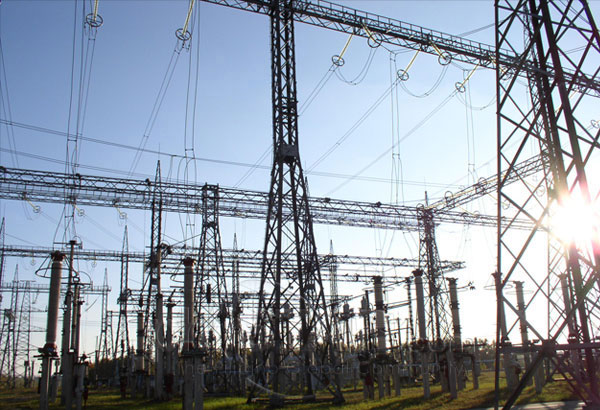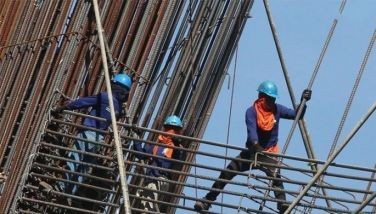Season of hope

They say that Christmas is a season of hope.
For those who have not been paying their taxes or have not declared certain transactions that call for payment of taxes, the proposed tax amnesty bill, which the government wants to be implemented by next year, has given them hope that finally, they can have a clean slate so to speak.
The tax amnesty bill provides taxpayers a one-time amnesty for estate taxes, unpaid general taxes, and delinquencies. It forms part of Package 1B of the Tax Reform for Acceleration and Inclusion Act or TRAIN law.
According to House Rep. Mikee Romero who is part of the committee and is the principal author of the House version, the amnesty will cover estate taxes which will be at six percent of the assessed value, while early bird payees can avail of an additional 20 percent discount. It would cover unpaid taxes until Dec. 31, 2017.
The proposed measures includes real estate, capital gains, value-added tax, excise tax, and all national taxes.
The bicameral conference committee reconciling House Bill No. 8554 and Seate Bill no. 2059 has also included the Bureau of Customs (BOC) collections in the bill’s general tax amnesty coverage.
Just recently, the committee agreed to give taxpayers the option to submit either a statement of total assets or a statement of assets, liabilities and net worth (SALN), along with a general tax amnesty return when availing of the amnesty. If a taxpayer opts for the first, the general amnesty tax rate will be two percent of his assets as of Dec. 31, 2017. If a SALN is submitted, the rate will be five percent of his net worth.
In coming up with the final version of the tax amnesty bill, our legislators should keep in mind that the more people availing of the tax amnesty, the better. They should make it easy and convenient for taxpayers, instead of imposing so many requirements which can be a turn-off.
Government should find a way to simplify the manner by which the heirs can settle the estate of their deceased relatives. Reducing the estate tax rate, providing for a one-time amnesty, is one thing. There should be a simpler way of transferring title to property from the decedent to the heir.
Oftentimes, it is not the estate tax rate that is turning people off. It is the entire process of settling the estate, either judicially or extrajudicially, and getting all those clearances from different offices, getting the certificate authorizing registration (CAR) from the Bureau of Internal Review before one finally goes to the Register of Deeds to have the title transferred to your name is very cumbersome. And because the process can be complicated, some are forced to hire the services of a lawyer, which will definitely add to the cost.
Providing hope
It is easy to say that Christmas is a season of hope, but for those suffering from so-called “killer” diseases like cancer, they oftentimes find it difficult if not impossible to have hope and faith.
To help Filipino patients and their loved ones rise above these challenges, biopharmaceutical company AstraZeneca has partnered with the Philippine Society of Medical Oncology (PSMO), along with local support groups such as the Cancer Coalition Philippines (CCP), and the Philippine Alliance of Patient Organizations (PAPO) to launch LVNG With Lung Cancer, an online resource portal for patients across all stages of lung disease.
AstraZeneca Philippines medical affairs head Dr. Donald Ray Josue explains that support is vital, especially with patients diagnosed with lung cancer feeling anxious and hopeless. This is why LVNG With Lung Cancer provides support by forming a community of patients and their loved ones so they can inspire one another and exchange helpful information about their treatment.
Josue emphasized that through the network, patients may realize that while lung cancer is not yet curable, it is very treatable and there’s still so much more for them to look forward to in their lives.
According to a 2018 report by the International Agency for Research on Cancer (IARC), lung cancer is the top cancer killer worldwide, with 2.09 million incidences and 1.76 million fatalities this year alone. But while a majority of lung cancer deaths involve tobacco use, non-smokers are also at serious risk.
Dr. Denky Shoji Dela Rosa, a medical oncologist from the University of the East Ramon Magsaysay Memorial Medical Center and St. Luke’s Medical Center, explained that lack of awareness has been a source of stigma because people often put the blame on the individual. This makes it difficult for lung cancer patients to find support and form communities.
A 2015 study on the European Respiratory Journal revealed that about 25 percent of lung cancer incidences are not linked to smoking, and that the rate of never-smokers diagnosed with the disease has been increasing. The American Cancer Society has identified several causes, such as exposure to second-hand smoke, diesel exhaust, asbestos, radioactive radon gas, and chemicals released by burning coal products.
LVNG With addresses these stigmas by dispelling myths that prevent lung cancer patients from seeking proper treatment and seeing hope in their condition. The community also empowers patients with information that enable them to reach out to medical professionals so they can learn more about treatment options.
Dr. Mary Claire Soliman, president of the Philippine Society of Medical Oncology and member of Cancer Coalition Philippines has emphasized that standard evidence-based medicine is the way to go in treatment, adding that while promise of alternative medicines (natural, herbal, or nutraceutical medicine) may be tempting, especially with their claims that they do not have side effects, the fact of the matter is that there is very little evidence to support these claims.
A study at the Journal of the National Cancer Institute revealed that patients who initially chose alternative medicine over conventional lung cancer treatment had a more than twofold increase risk of dying.
Dr. Maria Luisa Abesamis-Tiambeng of Cardinal Santos Medical Center noted that while chemotherapy, or the use of drugs to kill and stunt malignant tumors, is usually thought of as the only treatment for cancer, the fact is, various options are now available depending on the patient’s diagnosis, preference, and recommendations from the healthcare team. Among these include surgery to remove affected lung tissues, radiation therapy that use high doses of radiation to destroy cancer cells, and targeted drug therapy.
For comments, e-mail at [email protected]
- Latest
- Trending































